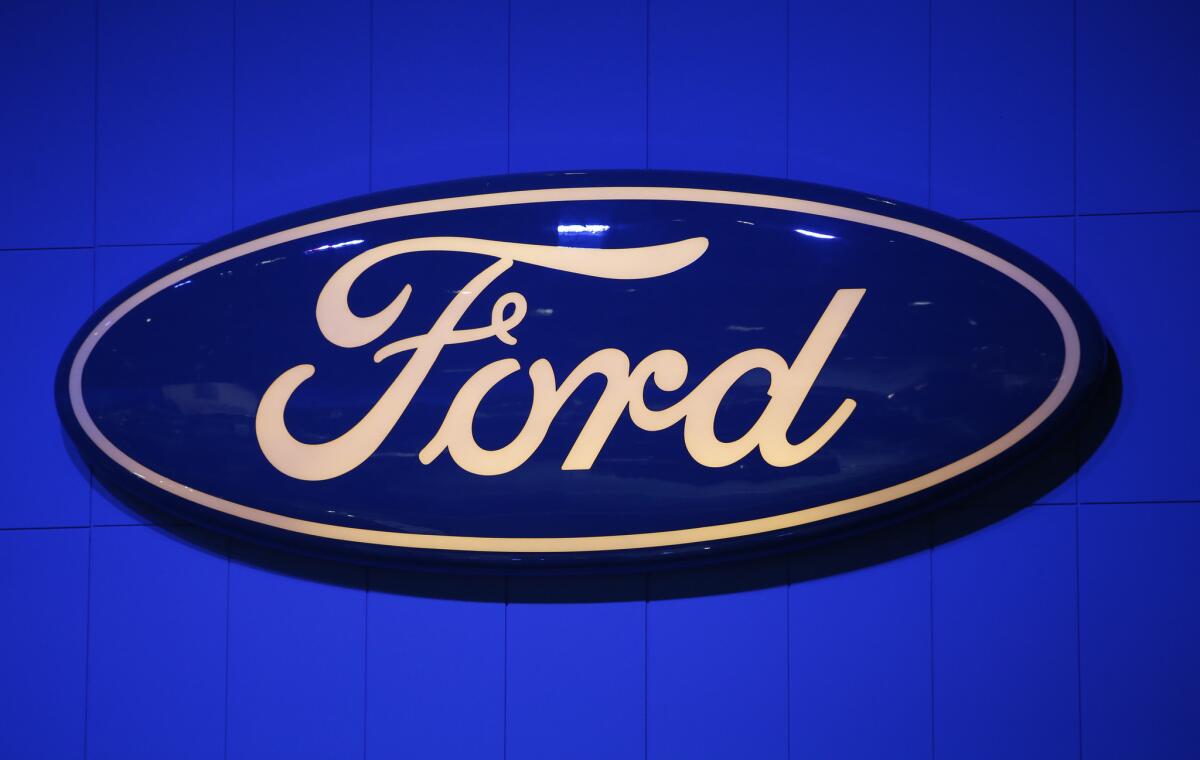GM, Ford invest in driverless cars, ride hailing

Ford Motor Co. said Friday that it was establishing a Silicon Valley-based subsidiary to build and invest in new mobility options like car-sharing and ride-hailing services.
Two Detroit automakers announced moves into Silicon Valley on Friday as the companies race to compete in the new era of ride-sharing and self-driving cars.
Ford Motor Co. said it would establish a Palo Alto subsidiary to build and invest in new mobility options, including car-sharing and ride-hailing services, while General Motors Co. revealed that it had acquired Cruise Automation, a small software company that has been testing self-driving vehicles on the streets of San Francisco.
Ford Chief Executive Mark Fields said its subsidiary, Smart Mobility, would also have offices in Ford’s hometown of Dearborn, Mich. The idea is to make it “separate but connected” to its parent.
“We wanted to make sure to give it the freedom and the flexibility to move almost like tech companies do,” Fields told the Associated Press.
The research and design of autonomous vehicles and vehicle connectivity will remain with the parent company, he said.
SIGN UP for the free California Inc. business newsletter >>
Smart Mobility will be chaired by former Steelcase CEO Jim Hackett, a member of Ford’s board since 2013. Hackett resigned his board seat Friday to lead the new company. Ford plans to name a chief executive in the near future.
Ford has already conducted more than 30 global transportation experiments over the last 14 months. They include GoDrive, a car-sharing program with guaranteed parking in London, and Bridj, a van service in Kansas City, Mo., that users can summon with a smartphone.
This is not Ford’s first foray into Silicon Valley. In January 2015, the carmaker opened a research center in Palo Alto dedicated to advanced automotive technologies, such as autonomous and remotely piloted vehicles. The think tank is staffed with more than 100 engineers, designers and researchers.
And in December, there were reports that the automaker was in talks with Google to build the search giant’s self-driving car. Ford received a permit that same month to begin operating a driverless car on public streets.
At the time, company officials said a Ford Fusion hybrid was being tested in a closed-course setting in the Palo Alto area, and that a small fleet of 2016 Fusions would begin driving around Silicon Valley and San Francisco.
General Motors’ Cruise Automation is a three-year-old company based in San Francisco with 40 employees. It is developing self-driving car software, according to its website.
The acquisition, coupled with GM’s in-house research, should help the company in its race with Google and others to have autonomous cars start transporting people on public roadways.
GM wouldn’t give a timetable for rolling out the technology, but President Dan Ammann said it would happen as soon as the company can demonstrate that the cars are ready.
It’s the automaker’s third high-profile venture this year into new mobility.
In January, GM acquired the assets of ride-hailing company Sidecar Technologies Inc., a San Francisco company that shut down at the end of last year.
The automaker also invested $500 million in ride-sharing service Lyft. The two companies plan to collaborate on a service that will allow users to reserve a self-driving car, much as they do with Lyft. Also in January, GM launched a car-sharing service called Maven that allows users to reserve and unlock vehicles with their smartphone.
Times staff writers Charles Fleming and Andrea Chang and the Associated Press contributed to this report.
ALSO
How the 1981 assassination attempt changed Nancy Reagan
Brentwood neighbors want city to punish landowner over tree removal
Aiming to drive down gun deaths? Put these three laws on the books, researchers say
More to Read
Inside the business of entertainment
The Wide Shot brings you news, analysis and insights on everything from streaming wars to production — and what it all means for the future.
You may occasionally receive promotional content from the Los Angeles Times.











